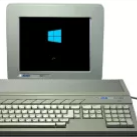Spectre patch tested on the iPhone 6 - 40% DROP in both single and multi core performance
-
Featured Topics
-
Topics
-
0
-
Tesioniro ·
Posted in New Builds and Planning1 -
18
-
8
-
TannerMcCoolman ·
Posted in LTT Releases7 -
1
-
4
-
15
-
7
-
2
-




















Create an account or sign in to comment
You need to be a member in order to leave a comment
Create an account
Sign up for a new account in our community. It's easy!
Register a new accountSign in
Already have an account? Sign in here.
Sign In Now